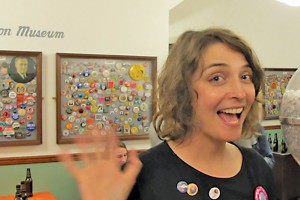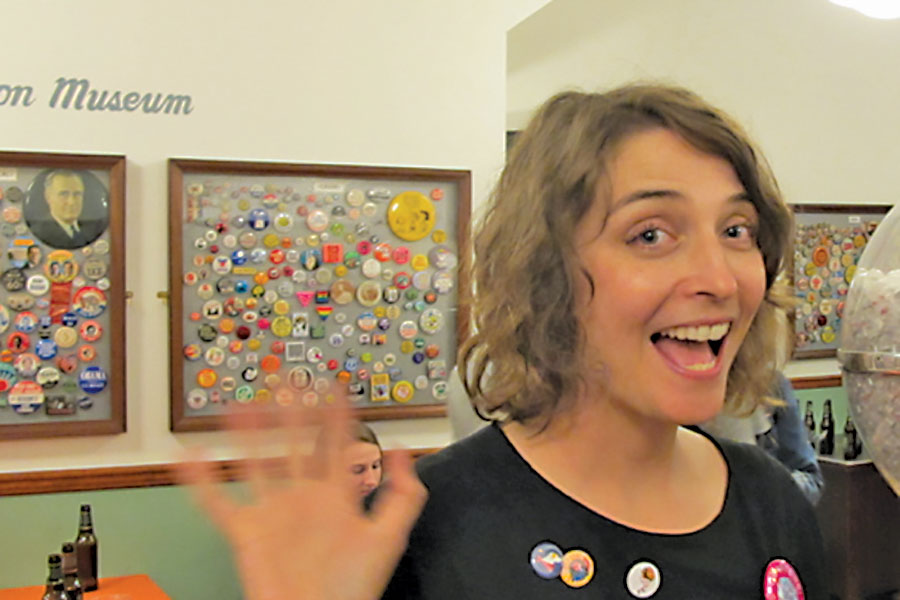 You may not think of a button as being a powerful communications tool, but Christen Carter does — at least when it comes to the pinback (also known as a button badge or pin button).
You may not think of a button as being a powerful communications tool, but Christen Carter does — at least when it comes to the pinback (also known as a button badge or pin button).
“Almost anything can be covered by buttons,” says Carter, founder of Busy Beaver Button Co. in Chicago. She points to historical events, such as moon landings and world fairs, to social gatherings, such as family reunions and weddings, and to political and social causes.
“Buttons have a wonderful populist quality,” observes Carter. “They’re cheap, so anyone can afford them, and yet they’re a diverse medium for communicating and celebrating. A button can help us remember an important event, support a cause or express an opinion. It’s a very sweet form of word of mouth.”
Carter launched Busy Beaver in 1995 while still in college and operated it as a lifestyle business until 2008. Then Carter became intent on growth and began to introduce formal systems to help the company scale, which ranged from mission and vision statements to standard operating procedures and lean manufacturing practices.
Since then Busy Beaver has moved into second stage with more than $1 million in annual revenue and nearly two dozen full- and part-time employees. Clients range from large organizations such as Brooklyn Brewery, NBC Entertainment and The Art Institute of Chicago, to small businesses, rock bands and individuals.
Known for its creativity, Busy Button offers a wide variety of styles and finishes, and has an in-house design team to help customers. Each year the company curates a series of limited-edition pinbacks, asking 10 designers to create a button for a specific theme (among this year’s contributors was legendary graphic designer Milton Glaser, creator of the “I love NY” logo). The buttons are then distributed via gumball vending machines at locations around Chicago and across the country.
